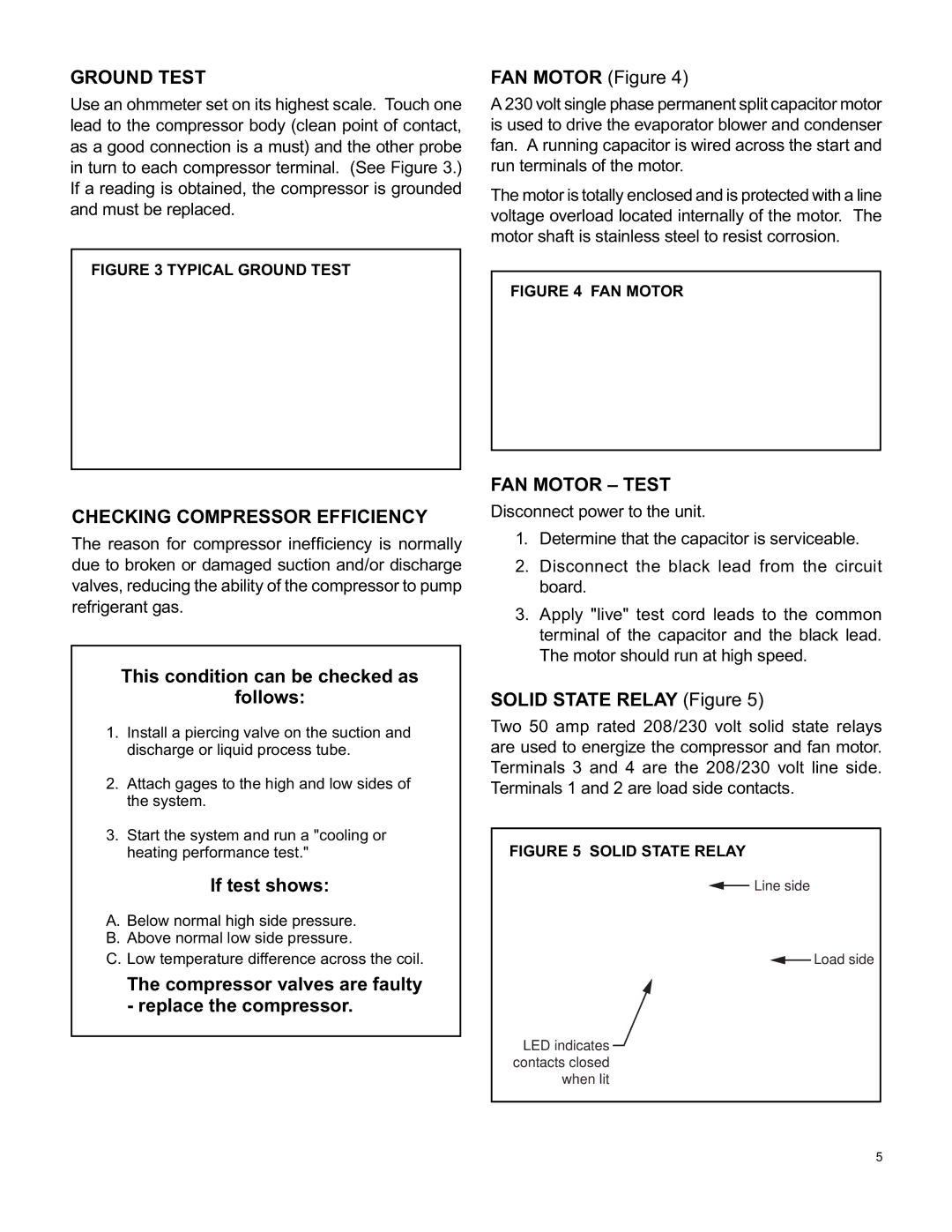
GROUND TEST
Use an ohmmeter set on its highest scale. Touch one lead to the compressor body (clean point of contact, as a good connection is a must) and the other probe in turn to each compressor terminal. (See Figure 3.) If a reading is obtained, the compressor is grounded and must be replaced.
FIGURE 3 TYPICAL GROUND TEST
FAN MOTOR (Figure 4)
A 230 volt single phase permanent split capacitor motor is used to drive the evaporator blower and condenser fan. A running capacitor is wired across the start and run terminals of the motor.
The motor is totally enclosed and is protected with a line voltage overload located internally of the motor. The motor shaft is stainless steel to resist corrosion.
FIGURE 4 FAN MOTOR
CHECKING COMPRESSOR EFFICIENCY
The reason for compressor ineffi ciency is normally due to broken or damaged suction and/or discharge valves, reducing the ability of the compressor to pump refrigerant gas.
This condition can be checked as
follows:
1.Install a piercing valve on the suction and discharge or liquid process tube.
2.Attach gages to the high and low sides of the system.
3.Start the system and run a "cooling or heating performance test."
If test shows:
A.Below normal high side pressure.
B.Above normal low side pressure.
C.Low temperature difference across the coil.
The compressor valves are faulty - replace the compressor.
FAN MOTOR – TEST
Disconnect power to the unit.
1.Determine that the capacitor is serviceable.
2.Disconnect the black lead from the circuit board.
3.Apply "live" test cord leads to the common terminal of the capacitor and the black lead. The motor should run at high speed.
SOLID STATE RELAY (Figure 5)
Two 50 amp rated 208/230 volt solid state relays are used to energize the compressor and fan motor. Terminals 3 and 4 are the 208/230 volt line side. Terminals 1 and 2 are load side contacts.
FIGURE 5 SOLID STATE RELAY
![]() Line side
Line side
![]() Load side
Load side
LED indicates contacts closed when lit
5
